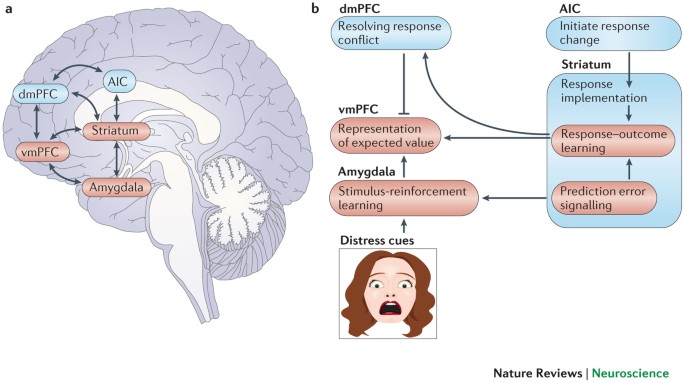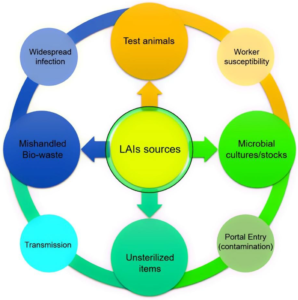In recent years, the term “malignant narcissist” has gained significant attention in both psychological circles and popular culture. This concept combines traits of narcissism with antisocial behavior, creating a complex personality that is often harmful to others. In this article, we will explore the characteristics of a malignant narcissist, how they operate in relationships, and the impact they have on those around them. We will also discuss coping strategies for those affected by malignant narcissists and the importance of seeking help.
What is Malignant Narcissism?
Definition and Overview
Malignant narcissism is a term that describes a particular type of narcissistic personality disorder. Unlike individuals with standard narcissistic traits, malignant narcissists exhibit more severe antisocial behavior, including aggression and a lack of empathy. This combination makes them particularly dangerous and destructive in personal and professional relationships.
Historical Background
The concept of malignant narcissism was first introduced by the psychiatrist Erich Fromm in his book “The Heart of Man.” Fromm suggested that malignant narcissists possess a blend of narcissistic traits and aggressive tendencies. Since then, the term has evolved and is now used in clinical psychology to describe a distinct personality type.
Key Characteristics
Malignant narcissism is characterized by several key traits, including:
- Narcissism: An excessive sense of self-importance and a strong need for admiration.
- Antisocial Behavior: A disregard for the feelings and rights of others, often leading to manipulative and deceitful behavior.
- Aggression: A tendency to lash out at those who challenge or criticize them, often using intimidation and fear.
- Lack of Empathy: An inability to understand or care about the feelings of others, leading to harmful behavior without remorse.
These traits create a toxic personality that can have devastating effects on those around them.
Recognizing a Malignant Narcissist
Identifying a malignant narcissist can be challenging, as they often present themselves as charming and charismatic. However, several behaviors can indicate their true nature.
Grandiosity and Entitlement
Malignant narcissists often exhibit a sense of grandiosity, believing they are superior to others. They may constantly seek validation and admiration, often at the expense of those around them. This entitlement can manifest in various ways, such as demanding special treatment or disregarding the rules that apply to others.
Manipulation and Deceit
One of the most significant traits of a malignant narcissist is their ability to manipulate others. They may use charm and persuasion to get what they want, often lying or distorting the truth. This deceitful behavior can create a web of confusion for those who interact with them.
Emotional Abuse
Malignant narcissists are skilled at emotional abuse. They may use tactics such as gaslighting, belittling, and controlling behavior to maintain power over their victims. This emotional manipulation can lead to severe psychological harm, making it challenging for victims to recognize the abuse.
Aggressive Reactions
When challenged or criticized, malignant narcissists often react aggressively. This aggression can be verbal or physical, and it serves to intimidate and silence anyone who dares to confront them. Such reactions can create an atmosphere of fear, making it difficult for victims to escape the toxic relationship.
The Impact of Malignant Narcissism on Relationships
Personal Relationships
Malignant narcissists can be particularly destructive in personal relationships. Their charm and charisma may initially draw others in, but over time, their manipulative and abusive behavior can take a toll. Partners of malignant narcissists often experience feelings of confusion, fear, and worthlessness.
Professional Relationships
In professional settings, malignant narcissists can create a toxic work environment. They may undermine colleagues, take credit for others’ work, and manipulate situations to their advantage. This behavior can lead to high turnover rates and a lack of morale among team members.
Family Dynamics
Family members of malignant narcissists often find themselves trapped in a cycle of abuse. The narcissist may use guilt, shame, and control to maintain power over family members. This dynamic can lead to long-term psychological effects for victims, including anxiety, depression, and low self-esteem.
Coping Strategies for Dealing with Malignant Narcissists
If you find yourself in a relationship with a malignant narcissist, it is essential to have coping strategies in place to protect your mental and emotional well-being.
Establish Boundaries
Setting clear boundaries is crucial when dealing with a malignant narcissist. Define what behaviors are unacceptable and communicate these boundaries firmly. Be prepared for pushback, as narcissists often resist limits on their behavior.
Seek Support
Reach out to trusted friends, family members, or mental health professionals for support. Talking about your experiences can help you gain perspective and validate your feelings. Support groups for victims of narcissistic abuse can also provide valuable resources and connections.
Focus on Self-Care
Prioritize self-care to maintain your emotional health. Engage in activities that bring you joy, practice mindfulness, and consider therapy to process your experiences. Taking care of yourself is essential when navigating the challenges of a malignant narcissistic relationship.
Plan for Exit
If you are in a toxic relationship with a malignant narcissist, consider creating a plan to exit the relationship safely. This may involve seeking legal advice, finding a safe place to stay, or developing a support system to help you transition out of the relationship.
The Importance of Seeking Professional Help
Dealing with a malignant narcissist can be incredibly challenging, and it is essential to seek professional help when needed. A qualified mental health professional can provide guidance, support, and coping strategies tailored to your situation. Therapy can help you process your experiences and rebuild your self-esteem, allowing you to move forward with your life.
Types of Therapy
- Cognitive Behavioral Therapy (CBT): This type of therapy focuses on changing negative thought patterns and behaviors. It can be particularly beneficial for individuals struggling with anxiety or depression as a result of narcissistic abuse.
- Trauma-Informed Therapy: This approach recognizes the impact of trauma on an individual’s mental health. A trauma-informed therapist can help you process your experiences and develop coping strategies to manage triggers.
- Supportive Counseling: Sometimes, simply talking to someone who understands your experiences can be healing. Supportive counseling can provide a safe space to share your feelings and receive validation.
Conclusion
Understanding the malignant narcissist is crucial for recognizing the signs and protecting oneself from their harmful behavior. By identifying the characteristics of malignant narcissism, we can better navigate relationships with these individuals and minimize their impact on our lives. Remember that seeking help and support is essential in coping with the effects of malignant narcissism. If you or someone you know is dealing with a malignant narcissist, take the necessary steps to prioritize your well-being and reclaim your life.
Final Thoughts
Malignant narcissism is a complex and often misunderstood personality disorder. By raising awareness and providing education on this topic, we can help those affected by these individuals find the support and resources they need. It is essential to remember that you are not alone, and there are paths to healing and recovery. Whether you are seeking to understand malignant narcissism or are directly impacted by it, this knowledge can empower you to reclaim your life and well-being.













